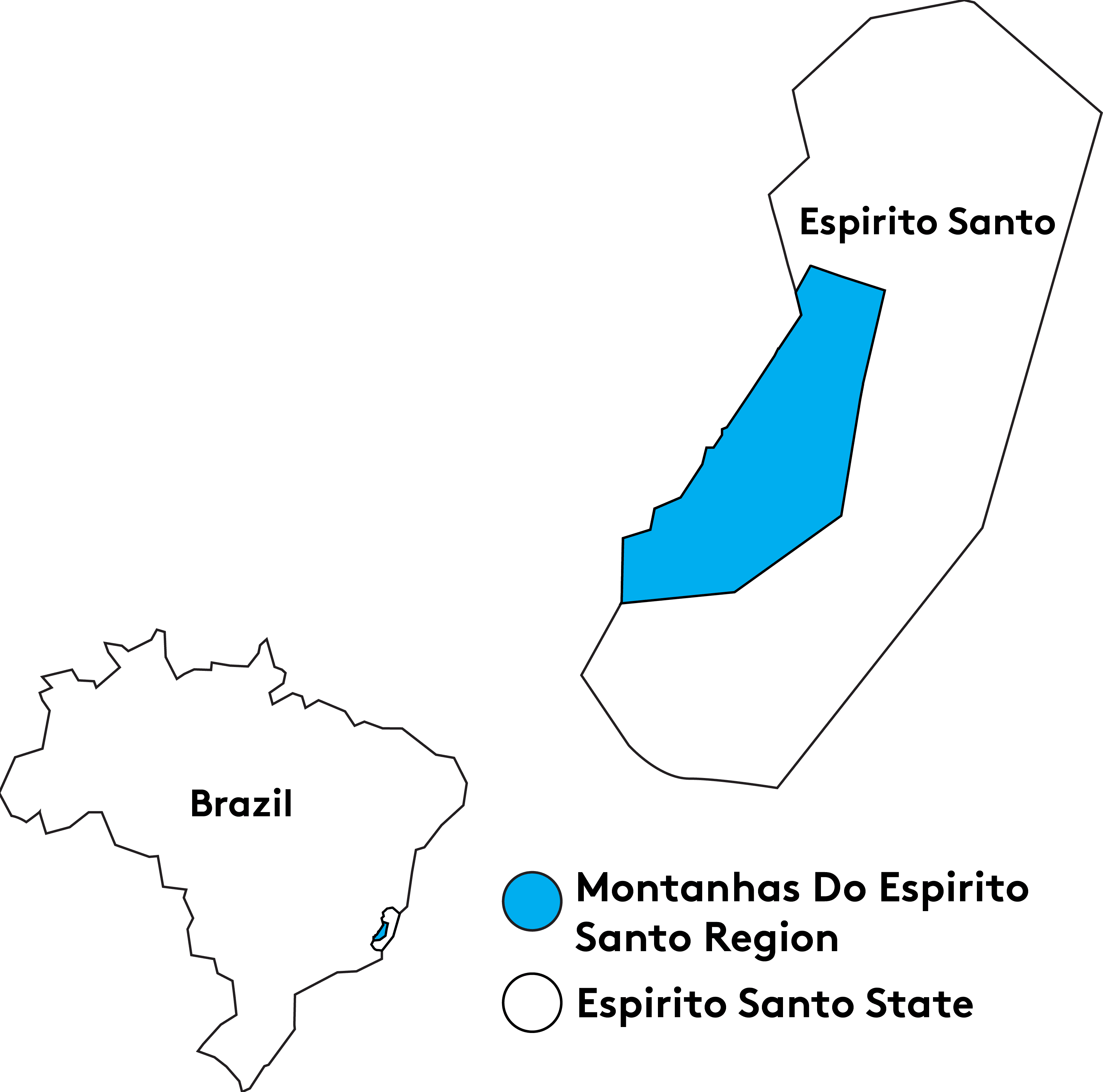Sítio Alto Lagoa is owned and operated by Délio Sering and his family in the Afonso Claudio municipality of Espírito Santo. Délio’s grandfather originally purchased the property, which was then inherited by Délio’s father Nivaldo Sering in the 1970s. Nivaldo planted the first coffee trees on the land, and worked producing conventional coffee there for many years.
In 2007, Nivaldo shared the land with Délio and his sister. Délio assumed management of the property from his father, continuing in the tradition of producing conventional coffee. In 2009 however, his friend and neighbor Valdir Mansk encouraged him to focus on producing high quality specialty coffee, capitalizing on the quality production conditions of the area. From then on, Délio began making improvements to the property and operations, building terraces to better dry the coffee and adopting selective harvesting techniques on the farm.
Today, Délio works with his family, including his wife Irinéia Ratwik and their son Mikael, focused on quality and on continuous improvement in their product. The seven hectare farm is planted with four hectares of Catuai and Catucai trees, producing approximately 150 bags of coffee annually.
This lot of Catucai underwent Washed processing. Catucai was developed as a cross between Icatu and Catuai. The first selection was made in 1988 by researchers at the then Brazilian Coffee Institute (IBC) in a population of the Red Icatu cultivar. After generations of breeding and selection in both Minas Gerais and Espírito Santo, the program gave rise to cultivars with red fruits and yellow fruits, then named Catucai.
